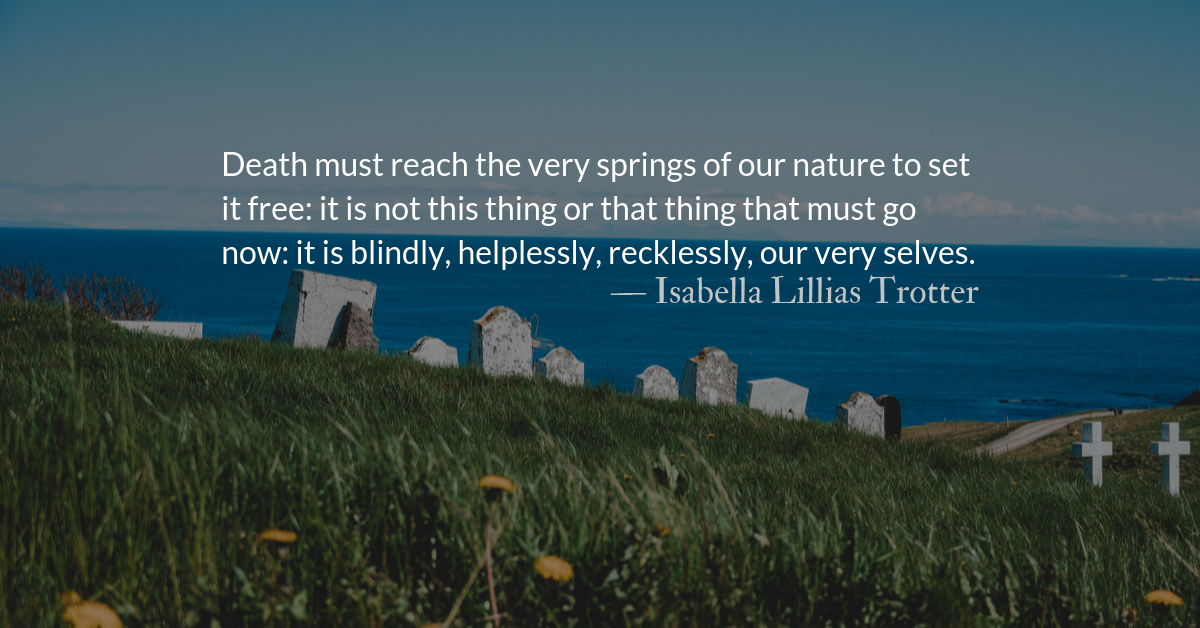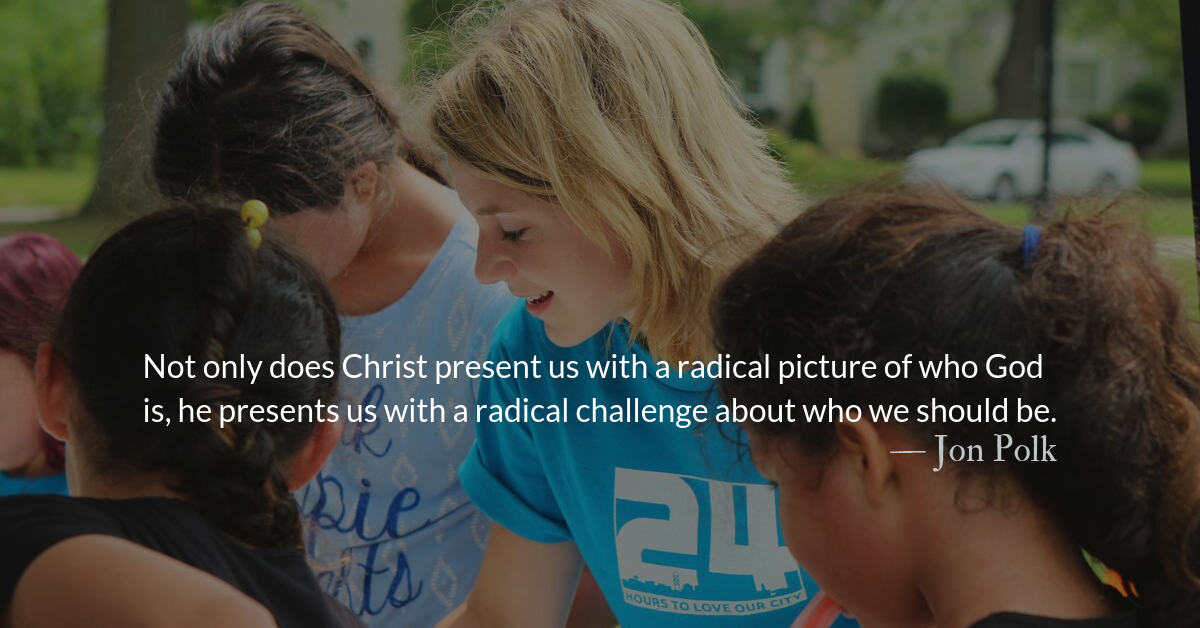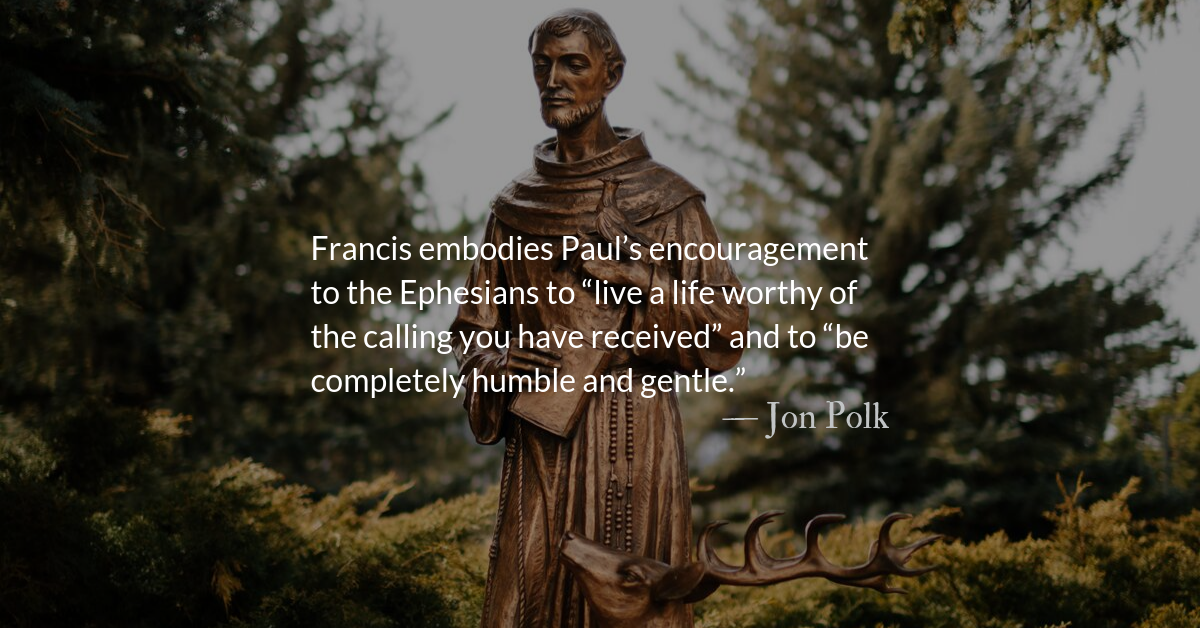Scripture Focus: Philipians 4.11-13
I have learned to be content whatever the circumstances. I know what it is to be in need, and I know what it is to have plenty. I have learned the secret of being content in any and every situation, whether well fed or hungry, whether living in plenty or in want. I can do all this through him who gives me strength.
We can do without anything while we have God. Hallelujah! — Isabella Lillias Trotter
Reflection: The Step After Surrender :: Throwback Thursday
By Isabella Lillias Trotter
There is another stage to be developed in us after the lesson of absolute unquestioning surrender to God has been learnt.
A life that has been poured forth to Him must find its crown, its completion, in being poured forth for man: it must grow out of surrender into sacrifice. “They first gave their own selves to the Lord, and unto us by the will of God.”
Back to the Cross once more: if there is any place where this fresh lesson can be learnt, it is there! “Hereby perceive we the love of God, because He laid down His life for us, and we ought to lay down our lives for the brethren.”
It is the very love of Calvary that must come down into our souls, “Yea, if I be poured forth upon the service of your faith I joy and rejoice with you all:” so spoke the apostle who drank most deeply into the Master’s spirit: and again—“Death worketh in us, but life in you.” “Neither count I my life dear unto myself, that I may finish . . . the ministry.”
Deeper and deeper must be the dying, for wider and fuller is the lifetide that it is to liberate—no longer limited by the narrow range of our own being, but with endless powers of multiplying in other souls. Death must reach the very springs of our nature to set it free: it is not this thing or that thing that must go now: it is blindly, helplessly, recklessly, our very selves.
A dying must come upon all that would hinder God’s working through us—all interests, all impulses, all energies that are “born of the flesh”—all that is merely human and apart from His Spirit. Only thus can the Life of Jesus, in its intensity of love for sinners, have its way in our souls.
*From Parables of the Cross, by Isabella Lillias Trotter
Divine Hours Prayer: The Greeting
You are my hiding-place…you surround me with shouts of deliverance. — Psalm 32.8
– From The Divine Hours: Prayers for Autumn and Wintertime by Phyllis Tickle.
1 Kings 13 (Listen – 5:14)
Philippians 4 (Listen – 3:20)
Thank You!
Thank you to our donors who support our readers by making it possible to continue The Park Forum devotionals. This year, The Park Forum audiences opened 200,000 free, and ad-free, devotional content. Follow this link to join our donors with a one-time or a monthly gift.
Read more about Escaping Discontent
It is difficult to find contentment in a culture that works hard to foster discontent.
Read more about Greed and EnvyThe psalmist, is thrown into doubt and pushed to the limits of his understanding by the inequality he sees in the world.











